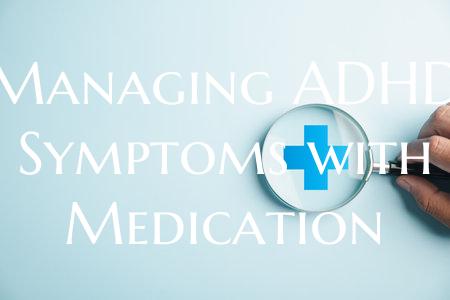
Managing ADHD Symptoms with Medication
Attention Deficit Hyperactivity Disorder (ADHD) is a neurodevelopmental disorder that affects both children and adults, characterized by symptoms of inattention, hyperactivity, and impulsivity. While there are various treatment options available for managing ADHD, medication is commonly prescribed to help individuals better control their symptoms and improve their quality of life.
Medication therapy for ADHD typically involves stimulant medications such as methylphenidate (e.g., Ritalin) or amphetamine-based medications (e.g., Adderall). These medications work by increasing the levels of neurotransmitters in the brain, specifically dopamine and norepinephrine, which play a key role in regulating attention, focus, and impulse control.
When used appropriately and under the supervision of a healthcare professional, medication can be effective in reducing ADHD symptoms and helping individuals stay organized, focused, and productive. However, it is important to note that medication is not a cure for ADHD but rather a tool to help manage symptoms.
Here are some key points to consider when managing ADHD symptoms with medication:
1. Consult a healthcare provider: Diagnosis and medication management for ADHD should always be overseen by a qualified healthcare provider, such as a psychiatrist or primary care physician. They can assess your symptoms, prescribe the appropriate medication, and monitor your progress over time.
2. Finding the right medication: Not all medications work the same for everyone, and it may take some trial and error to find the medication that is most effective for you. Your healthcare provider may need to adjust the dosage or switch medications based on your response and any side effects experienced.
3. Follow the prescribed regimen: It is essential to take your medication as directed by your healthcare provider. Skipping doses or taking more than prescribed can lead to ineffective treatment or potential side effects.
4. Monitor for side effects: While medication can be beneficial in managing ADHD symptoms, it may also come with side effects such as decreased appetite, difficulty sleeping, or mood changes. It is important to communicate any side effects you experience with your healthcare provider so they can make adjustments accordingly.
5. Combine medication with other strategies: While medication can be a helpful tool, it is often most effective when combined with other ADHD management strategies such as therapy, behavioral interventions, lifestyle modifications, and organization techniques.
Remember, managing ADHD symptoms with medication is a personalized process that requires ongoing communication with your healthcare provider to ensure the best outcomes. By working together and staying proactive in your treatment plan, you can effectively manage your ADHD symptoms and improve your overall well-being.